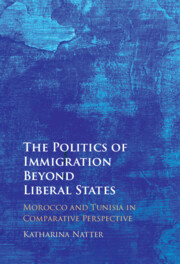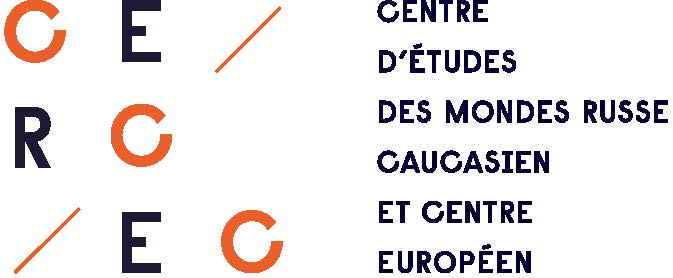Événement format hybride (présentiel / visio-conférence sur zoom)
Un séminaire organisé dans le cadre du groupe Migrations et Mobilités et l'Institut Convergence Migrations
Anna Triandafyllidou, Canada Excellence Research Chair in Migration and Integration, Toronto Metropolitan University
Responsable scientifique de l'événement : Hélène Thiollet, Sciences Po-CERI
If you wish to follow the event via zoom, please register with the link below:
If you wish to follow the event in person, please register with the links below:
Évènement en english
Événement en format hybride (présentiel / visio-conférence sur zoom)
a Repertoire of Muffled Voices
Lieu : Salle S1, 2e étage, 28 rue des Saints-Pères
Beyond official propaganda and under the threat of random censorship, the Russian grass-roots society is divided into a variety of politically meaningful voices of virtual communities, small marginal groups, and individuals. They position themselves in relation to the current war and the political regime. How can we study these groups? How adequate is the picture we get, given the censorship, self-censorship, distorting scripts of Internet bots, etc.? In spite of these complications, we will try to draw profiles of a few groupings or publics, thus attempting to zoom and partly reveal an uncertain picture of sentiments and attitudes.
Sergei Shtyrkov will talk about the group called “Citizens of the USSR”, a politicized New Age movement representing a mix of conspiracy theories and “legalist millennialism,” seeing itself in opposition to the current regime (and its war in Ukraine), and proposing a spiritual alternative to the entire system of modern society and knowledge. Alexandra Arkhipova will present an interview-based analysis of the voices of those people who face a hard choice between “I can’t keep quiet and I’m afraid to act,” thus showing how Russians are engaging in indirect, silent protest against the war and how the authorities are responding. Alexander Agadjanian will try to present an overall mapping of various types of attitudes revealed either through surveys or through a variety of more or less loosely-structured, semi-muffled voices.
Participants:
Alexandra Arkhipova, Laboratoire d'Anthropologie Sociale, EHESS;
Sergei Shtyrkov, Groupe Société, religion, laicité, EPHE;
Alexander Agadjanian, Chercheur invité, CERI
Moderator:
Kathy Rousselet, Sciences Po-CERI
Language of the event will be English
L'événement est organisé par le groupe "Mondes post-soviétiques" du CERI, en partenariat avec le séminaire "Autoritarisme, guerre et mobilisations dans l’espace postsoviétique" (CERCEC-EHESS).
Responsables scientifiques de l'événement : Vera Ageeva, Alex Agadjanian, Juliette Faure, Gilles Favarel-Garrigues, Denys Gorbach, Elisabeth Miljkovic, Renata Mustafina, Kathy Rousselet, Ioulia Shukan, Tatyana Shukan, Victor Violier
If you wish to follow the event via zoom, please register with the link below:
If you wish to follow the event in person, please register with the links below:
Événement en présentiel
Lieu : Salle G009, rez-de-chaussée, 28 rue des Saints-Pères
Transmettre à tout prix ce que l’on n’a pas : comment la pratique de la scolarisation des enfants à l’étranger, somme toute classique pour les élites mondialisées, prend des modalités et une signification particulière pour les élites russes ?
Ce qui constitue habituellement une simple modalité possible de reproduction parmi d’autres devient pour les élites russes un enjeu nodal dans lequel se joue l’ensemble du destin familial : laver des capitaux souillés, produire une altérisation, et construire une stratégie d’exit.
Intervenante :
Vitalina Dragun, doctorante au CREST (École Polytechnique de Paris)
Discutant :
Victor Violier, chercheur postdoctoral au CERI Sciences Po, résident à l'IRSEM
L'événement est organisé par le groupe "Mondes post-soviétiques" du CERI, en partenariat avec le séminaire "Autoritarisme, guerre et mobilisations dans l’espace postsoviétique" (CERCEC-EHESS).
Responsables scientifiques de l'événement : Vera Ageeva, Juliette Faure, Gilles Favarel-Garrigues, Denys Gorbach, Elisabeth Miljkovic, Renata Mustafina, Kathy Rousselet, Ioulia Shukan, Tatyana Shukan, Victor Violier
Hybrid event (presential / zoom)
Room : Salle G009, rez-de-chaussée, 28 rue des Saints-Pères 75007
Organised as part of the seminar Nuclear Knowledges
Speaker:
Luis Rodriguez is a Postdoctoral Fellow at Stanford University’s Center for International Security and Cooperation (CISAC). His research centers on international security, with a focus on the approaches of the Global South during the negotiations of nuclear, humanitarian, and cyber governance. He studies how developing countries navigate inequalities in international orders. Using a mix of qualitative methods, he analyzes how these countries attempt to level the playing field in global governance. Luis worked in the Mexican Ministry of Foreign Affairs before starting his Ph.D. in Political Science at Johns Hopkins University.
Abstract:
Multilateral organizations and international law play a central role as tools to address international security problems. Despite their benefits, these tools enshrine inequalities that favor powerful states. Recent literature studying lawmaking focuses on the creation and reproduction of hierarchies, but there is less attention to why developing countries accept or reject the institutionalization of these inequalities. I build a theory of order preferences by analyzing the making of the Treaty on the Non- Proliferation of Nuclear Weapons (NPT) and the divergent Brazilian and Mexican positions in these negotiations. The NPT has been fundamental to promoting international stability, but the treaty also has excluded developing countries from mastering technologies that nuclear powers argued could promote development at faster and cheaper costs. I argue that Brazil and Mexico had different balances of fears and promises around nuclear technologies, leading them to have contrasting responses to the inequalities that the NPT institutionalized.
Scientifics Coordinators : Benoît Pelopidas, Sciences Po-CERI and Sanne Verschuren, Sciences Po-CERI
The seminar will be held in person and also online via the Zoom platform.
You will receive a confirmation email with login information after you register.
Projection d'extraits de documentaire
Live Yu-Sion, chercheur et réalisateur du documentaire
Juliette Galonnier, Sciences Po-CERI
La diversité des pratiques et des lieux de culte caractérise le fait religieux des Chinois en France dans ses contenus et ses contours : hommage rendu aux défunts, cérémonies funéraires dans les cimetières, messe ou culte adressé à Jésus-Christ dans les Églises chinoises catholiques, protestantes ou mormones, vénération des divinités bouddhiques, taoïstes nationales ou locales et des Nouveaux Mouvements Religieux chinois, ou encore pratiques divinatoires dans les temples communautaires. Conçu dans un cadre historique et sociologique et non théologique, le film documentaire "Migrations et pratiques religieuses des Chinois en France" présente la pluralité du « croire », du fait religieux et non des religions, en lien avec les vagues migratoires chinoises depuis la Première Guerre mondiale jusqu’à nos jours. Il est illustré par des documents d’archives inédits et ponctué par des interventions de chercheurs, de responsables religieux ou laïcs, ainsi que par des témoignages d’adeptes et de pratiquants.
Responsables scientifiques : Ya-Han Chuang (Sciences Po CERI), Juan Du (CY Université et Ifrae Inalco), Hélène Le Bail (CNRS Sciences Po CERI)
Événement Hybride (présentiel et visio-conférence sur Zoom)
Lieu : Salle G009, rez-de-chaussée, 28 rue des Saints-Pères - 75007 Paris
Une séance organisée dans le cadre du séminaire Afrique
Giovanni Carbone, Professor of Political Science, Dipartimento di Scienze Sociali e Politiche | Università degli Studi di Milano
Roland Marchal, Sciences Po-CERI/CNRS
Richard Banégas, Sciences Po-CERI
Responsables scientifiques de l'événement : Richard Banégas, Roland Marchal
Si vous souhaitez suivre l'événement via zoom, merci de vous inscrire avec le lien ci-dessous
If you wish to follow the event via zoom, please register with the link below
ZOOM REGISTRATION / INSCRIPTION SUR ZOOM
Si vous souhaitez suivre l'événement sur place, veuillez vous inscrire avec les liens ci-dessous
If you wish to follow the event in person, please register with the links below
Événement hybride
Sciences Po, Salle S1,
28 rue des Saints Pères, 75007 Paris & Zoom
Une séance dans le cadre du séminaire conjoint CERI - CEE (Centre d'études européennes et de politique comparée) : Les sciences sociales en question : grandes controverses épistémologiques et méthodologiques.
Responsables scienctifiques : Samy Cohen, Sciences Po-CERI and Nonna Mayer, Sciences Po-CEE, CNRS.
Événement en présentiel
Lieu : Salle S1, 2e étage, 28 rue des Saints-Pères - 75507 Paris
Une séance organisée dans le cadre du séminaire Environnement et Relations Internationales du CERI (Sciences Po Paris).
Intervenant :
Joost de Moor, CERI, Sciences Po Paris
Discutant :
Maxime Gaborit, Université de St Louis, Belgique/Sciences Po Paris
Responsables scientifiques :
Carola Kloeck, assistant professor, Sciences Po-CERI
Adrien Estève, docteur associé, Sciences Po-CERI
Anaëlle Vergonjeanne, doctorante, Sciences Po-CERI
‘The Politics of Immigration Beyond Liberal States. Morocco and Tunisia in Comparative Perspective’
 The book systematically compares immigration policymaking in Morocco and Tunisia since the turn of the 21st century. It mobilizes immigration policy as a vantage point to study the inner workings of political regimes and seeks to advance theory-building on immigration policy across the democracy/autocracy and Global North/Global South divides. I hope that the book will be useful to those working on the fascinating interplay between immigration, political regimes, and modern statehood around the world.
The book systematically compares immigration policymaking in Morocco and Tunisia since the turn of the 21st century. It mobilizes immigration policy as a vantage point to study the inner workings of political regimes and seeks to advance theory-building on immigration policy across the democracy/autocracy and Global North/Global South divides. I hope that the book will be useful to those working on the fascinating interplay between immigration, political regimes, and modern statehood around the world.Discutantes :
Clara Lecadet, CNRS EHESS
Responsable scientifique de l'événement : Hélène Thiollet, Sciences Po-CERI

Événement en présentiel
Une séance de séminaire organisée dans le cadre du groupe de recherche : Sciences Sociales et Psychanalyse.
Lieu : Salle S1, 2e étage, 28 rue des Saints-Pères, 75007
Horaire : 17h30 - 20h
Intervenant :
Muriel Katz, Maîtresse d'enseignement et de recherche en psychologie clinique, psychologue-psychothérapeute FSP, Lausanne
Responsables scientifiques : François Bafoil, Sciences Po - CERI / CNRS (UMR 7050) et Paul Zawadzki, Groupe Sociétés, Religions, Laïcités (GSRL/UMR 8582).
Événement en présentiel
Lieu : Salle G009, rez-de-chaussée, 28 rue des Saints-Pères 75007 Paris
Organisé dans le cadre du groupe de recherche "Travail de l'ordre, police et organisations répressives (TOPOR)
 Discussion autour de la présentation de l'ouvrage Police, Provocation, Politics: Counterinsurgency in Istanbul. Cornell University Press (2022).
Discussion autour de la présentation de l'ouvrage Police, Provocation, Politics: Counterinsurgency in Istanbul. Cornell University Press (2022).
Intervenant :
Deniz Yonucu, Newcastle University
Discutant :
Gilles Favarel-Garrigues, Sciences Po-CERI
Responsable scientifique : Gilles Favarel-Garrigues et le groupe de recherche Topor, Sciences Po-CERI
Online event
The research group "The Diplomat, the Military and the Spy" invites you to the next seminar of its research program "Intelligence and Statecraft".
Speaker:
J. Michael Cole, Senior Advisor, Countering Foreign Authoritarian Influence (CFAI), International Republican Institute (IRI), former intelligence officer with the Canadian Security Intelligence Service (CSIS) in Ottawa, Canada.
Moderators:
Christian Lequesne, Hugo Meijer and Emilija Pundziute-Gallois
The session will be held in English.
The link to the on-line event will be sent to you upon registration
Scientific coordinators : Christian Lequesne, Sciences Po-CERI et Hugo Meijer, Sciences Po-CERI.
Lieu :
Presentiel event
CERI & CRIS Joint Seminar
Venue: Room Goguel, 27 rue Saint-Guillaume - 75007 Paris
The bulk of the current discussions and debates on religion and secularity in the Muslim world, including in Iran, suffers from an array of conceptual confusion, historical amnesia, and analytical simplifications. This is partly the consequence of the dominance of highly politicized narratives and the Neo-Orientalist modes of thinking, in which ‘state’ and ‘ideas’ are treated as the main drivers of historical change, including changes related to religion.
In Sacred as Secular: Secularization under Theocracy in Iran (2022, McGill-Queen’s University Press), Abdolmohammad Kazemipur offers an alternative account. Relying on a wide range of empirical data and using a Durkheimian sociological perspective, Kazemipur demonstrates the various dimensions of a deep secularization that has been underway in Iran in the Islamic Republic era and discusses the implications of those trends for the global debates on religion and secularity in the Muslim world.
Speaker:
Abdie Kazemipur, Professor of sociology and the Chair of Ethnic Studies at the University of Calgary
Discussant:
Riva Kastoryano, Sciences Po - CERI, CNRS
Évènement en english
Événement en ligne
Intervenante :
Cécile Aptel, Institut des Nations unies pour la recherche sur le désarmement (UNIDIR)
Discutante :
Clara Egger, Erasmus School of Social and Behavioural Sciences | Erasmus University Rotterdam
Dans le cadre du Groupe de recherche sur l'action multilatérale (GRAM), ce séminaire de recherche est organisé en partenariat avec l’Ecole doctorale de Sciences Po et le CERI (Centre de recherches internationales).
La page du séminaire pour plus d’informations.
Le séminaire est ouvert à tou-te-s : étudiant-e-s, doctorant-e-s, enseignant-e-s, chercheure-s de tous les laboratoires et à toute personne intéressée.
N’hésitez pas à contacter Anaëlle Vergonjeanne pour être ajouté à la liste de diffusion du GRAM.
Responsables scientifiques :
Guillaume Devin, professeur des universités à Sciences Po, chercheur CERI,
Alix Defrain-Meunier, doctorante, Sciences Po-CERI,
Anaëlle Vergonjeanne, doctorante, Sciences Po-CERI. (Groupe de Recherche sur l'Action Multilatérale)
La séance de ce séminaire aura lieu en ligne via la plateforme Zoom.
Vous recevrez un email de confirmation avec les informations de connexion après votre inscription.











 04/04/2023
04/04/2023 11:00
11:00 




.png)

